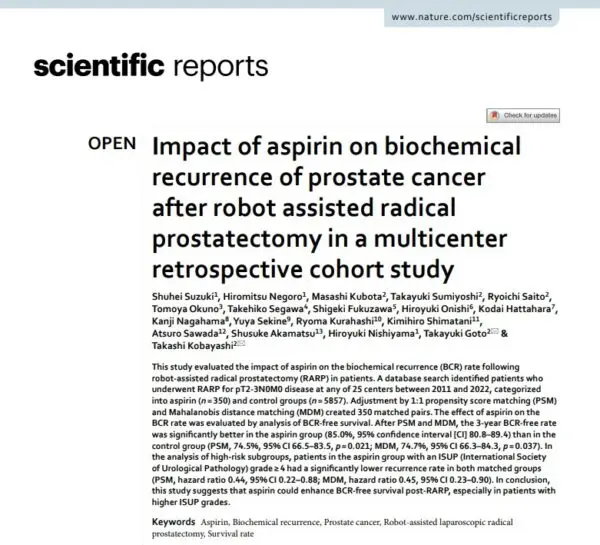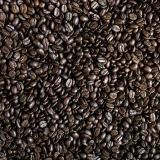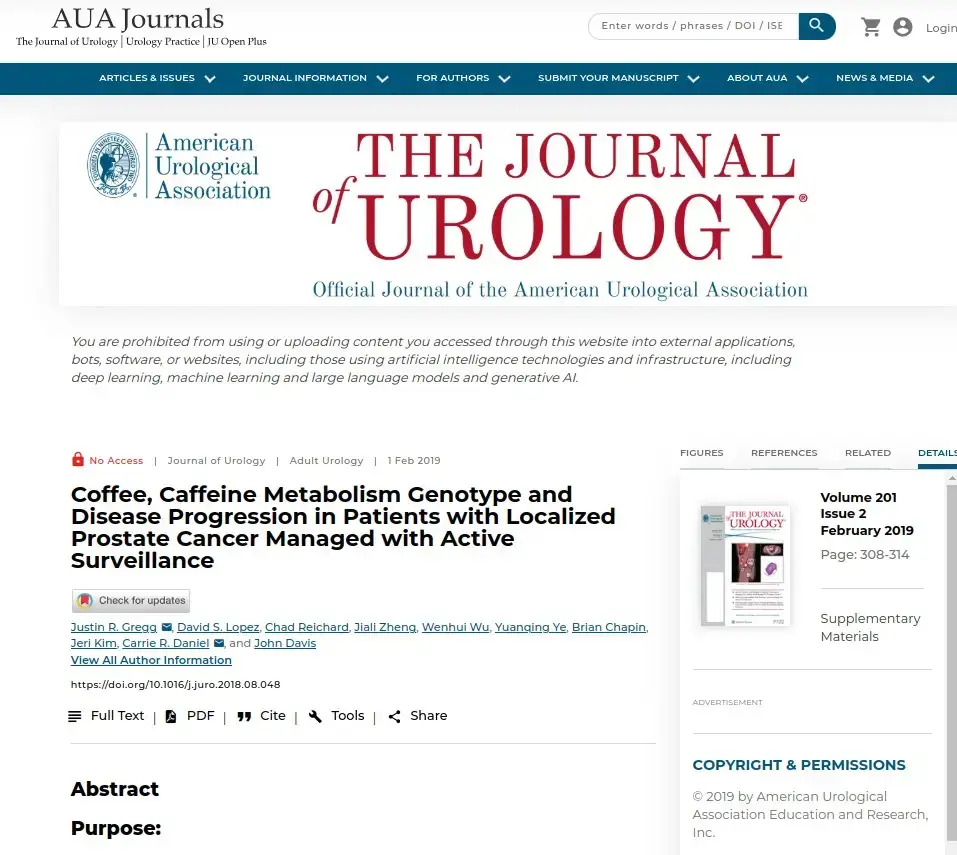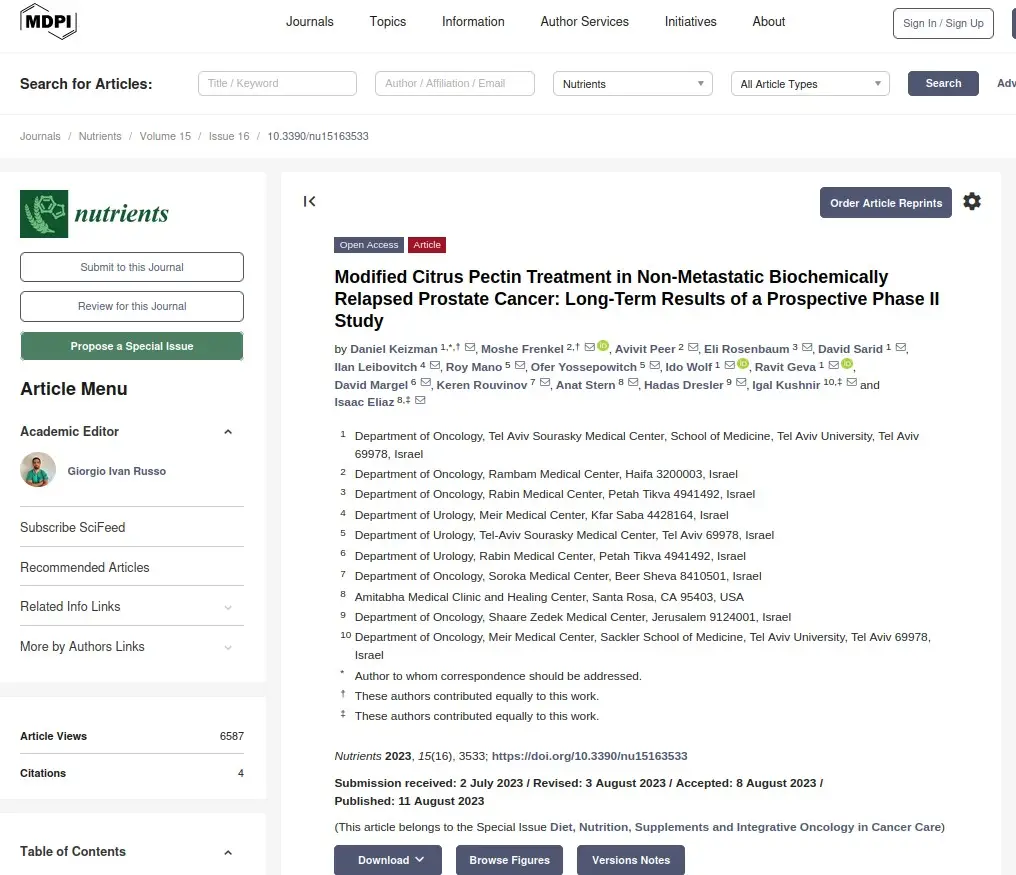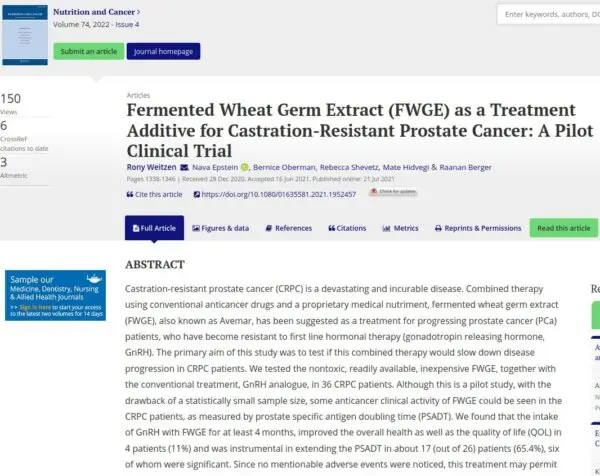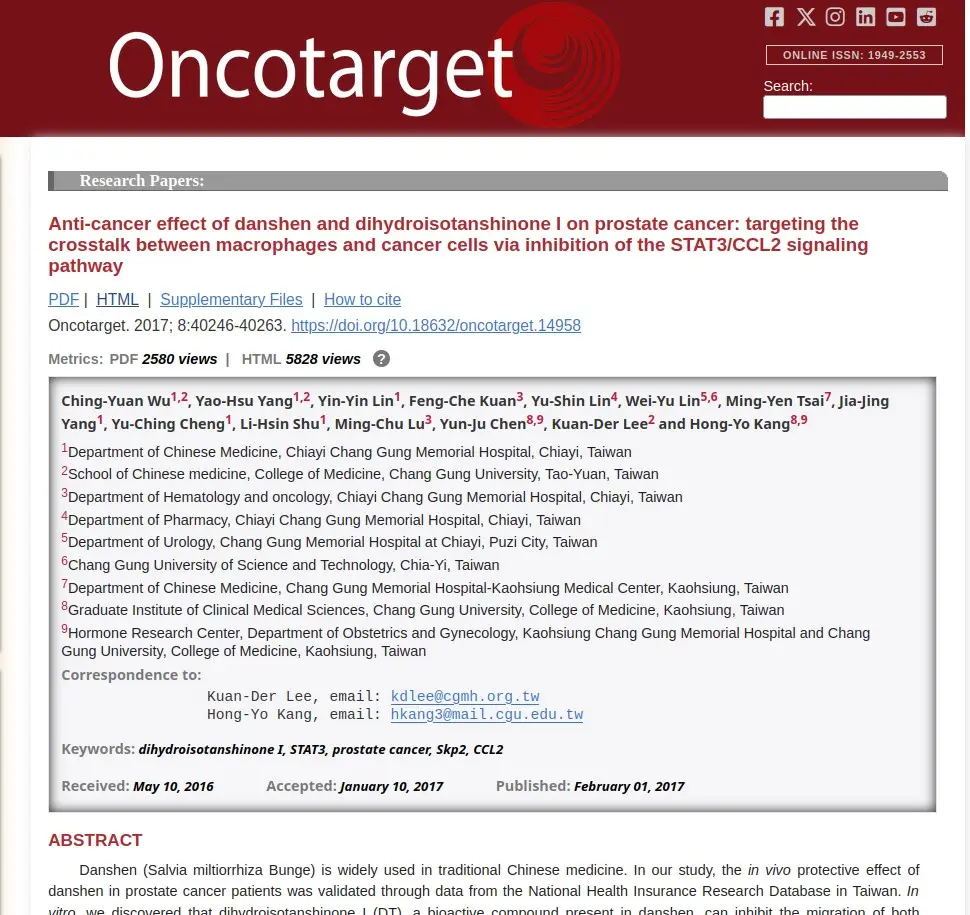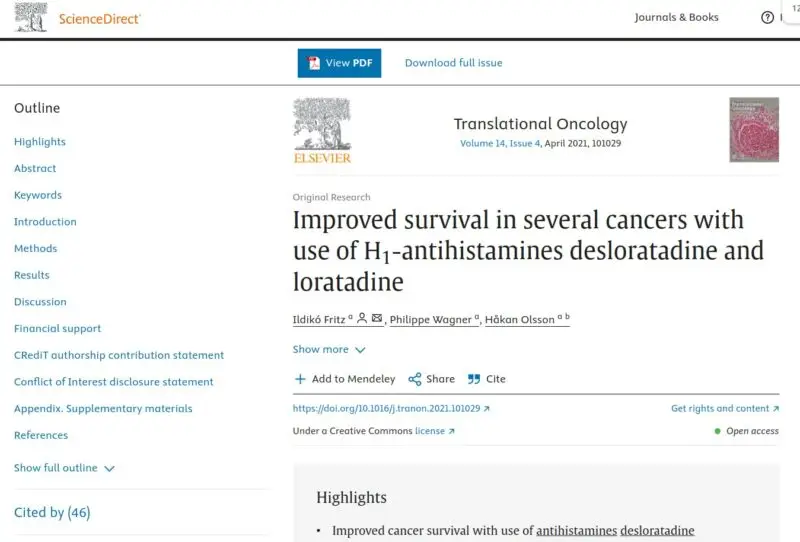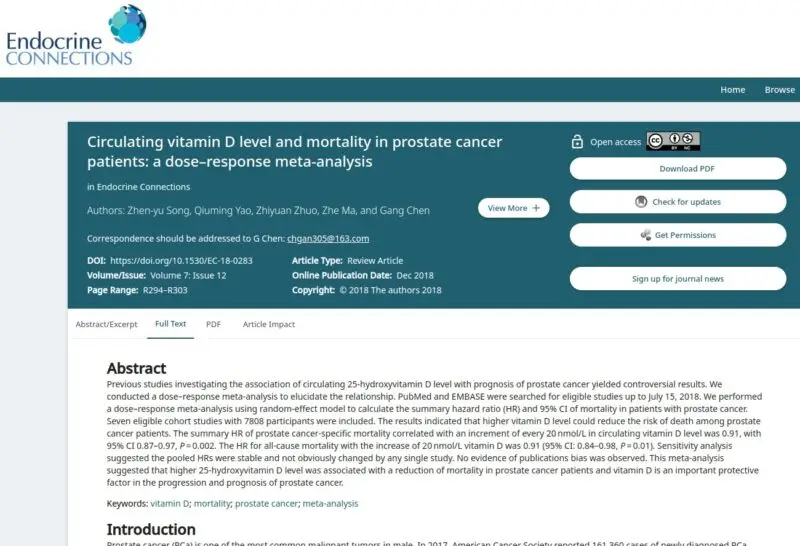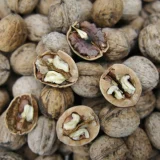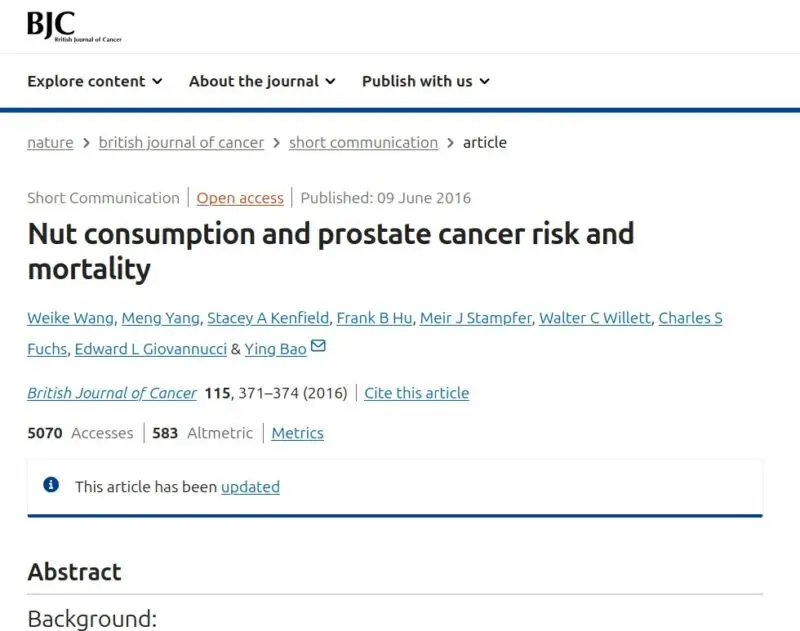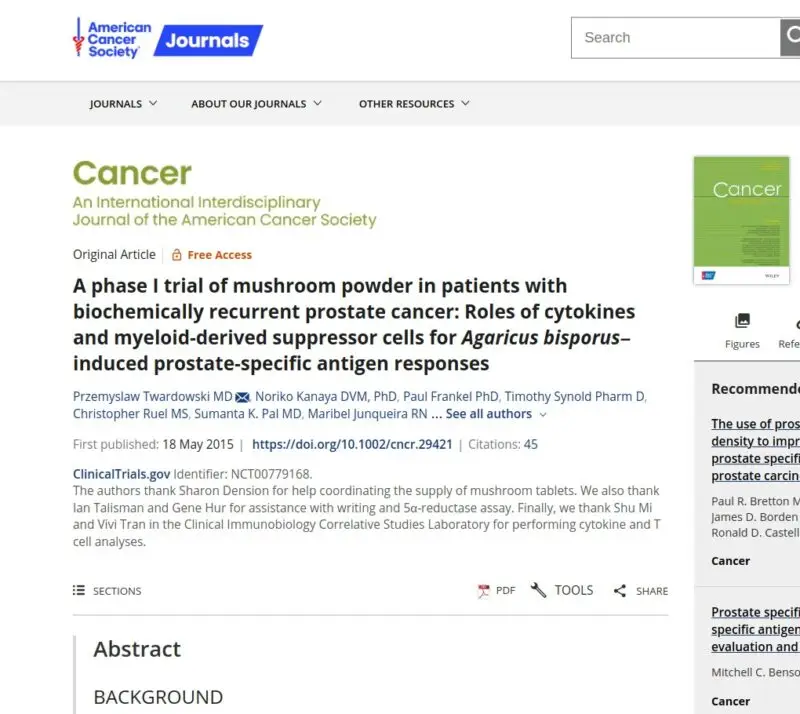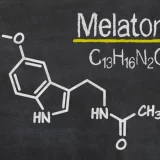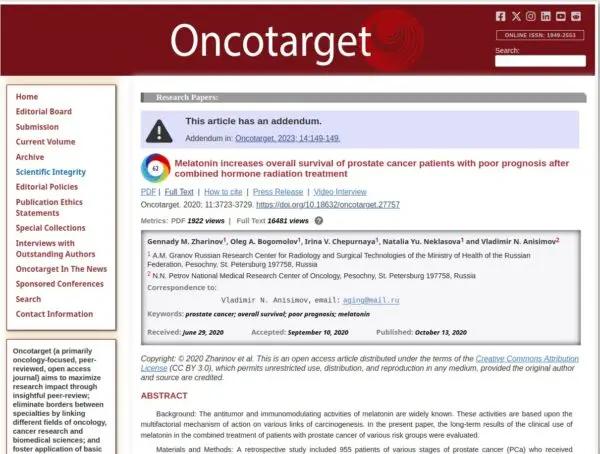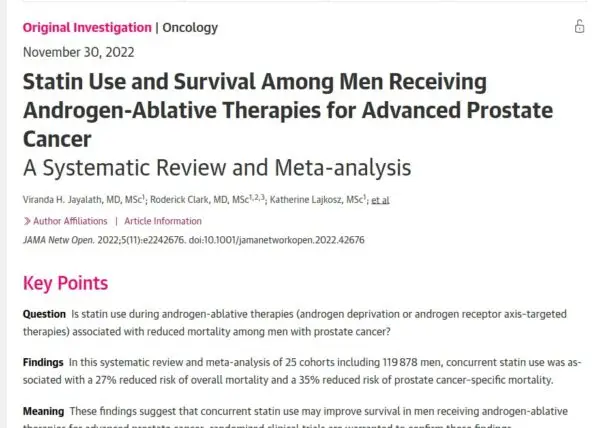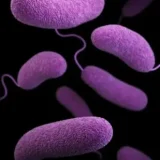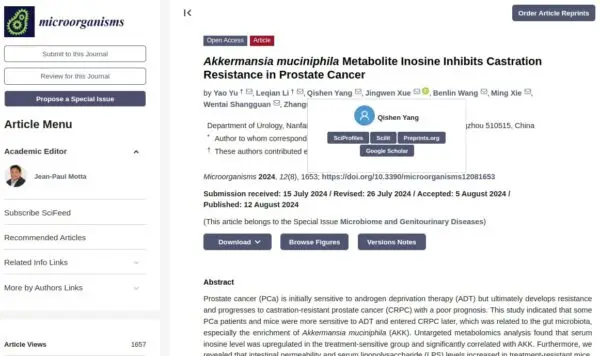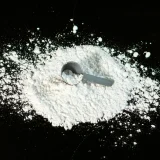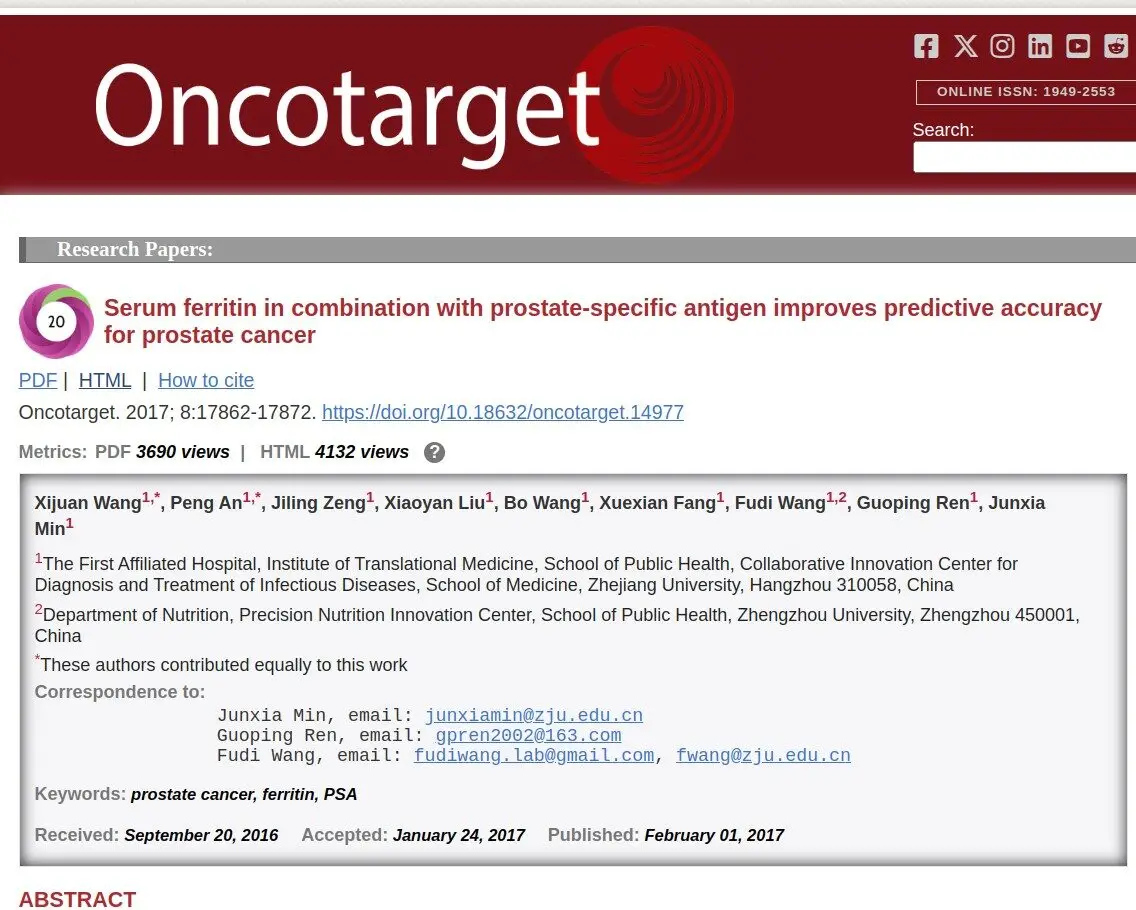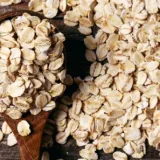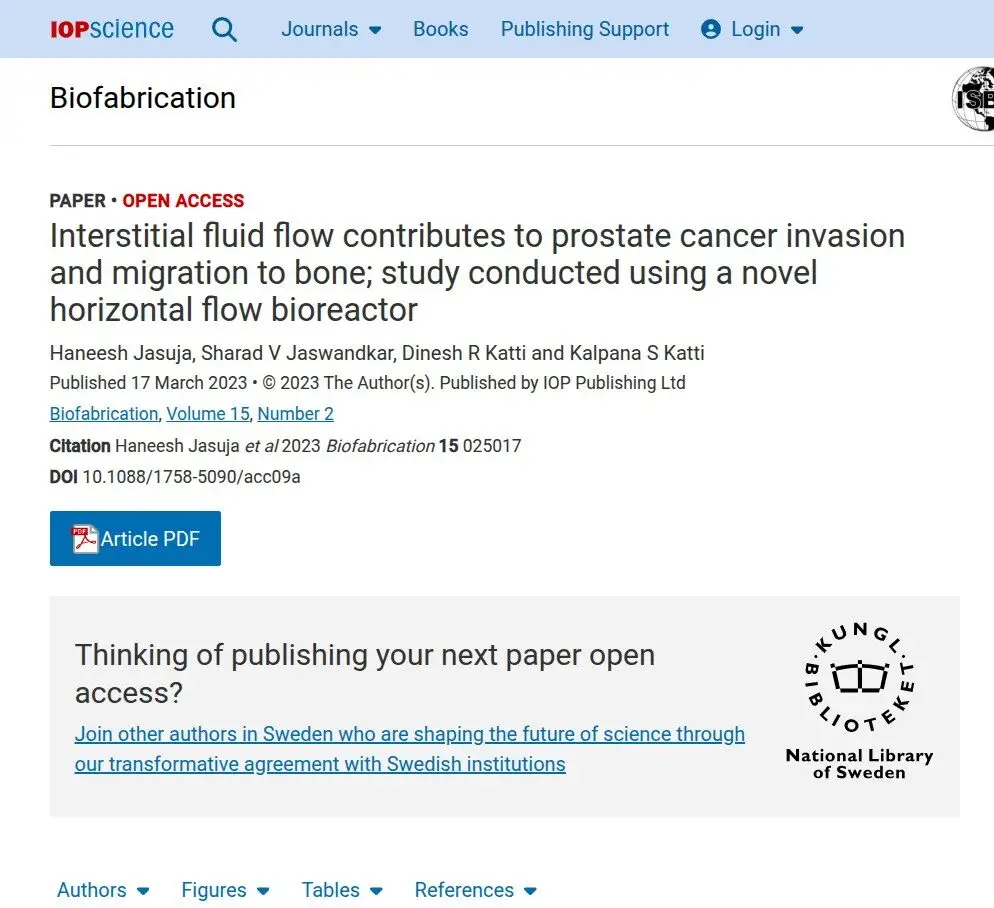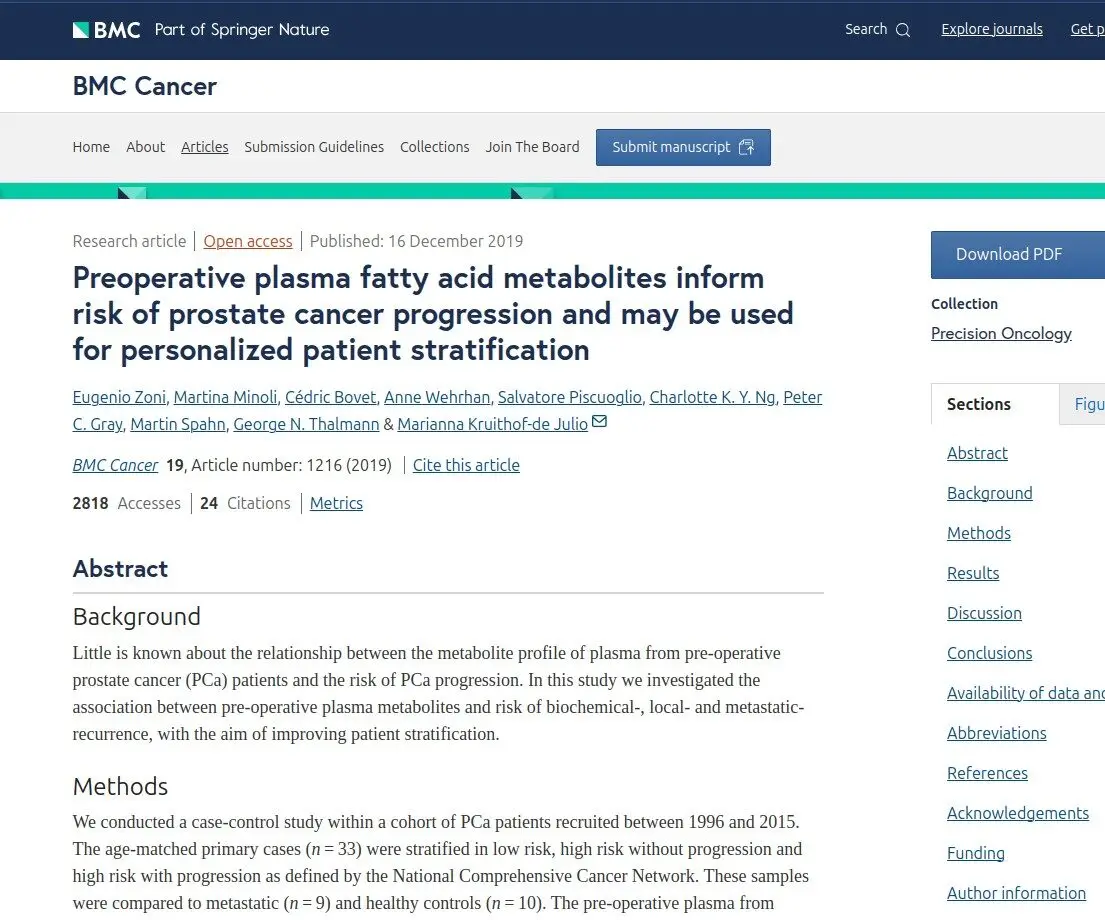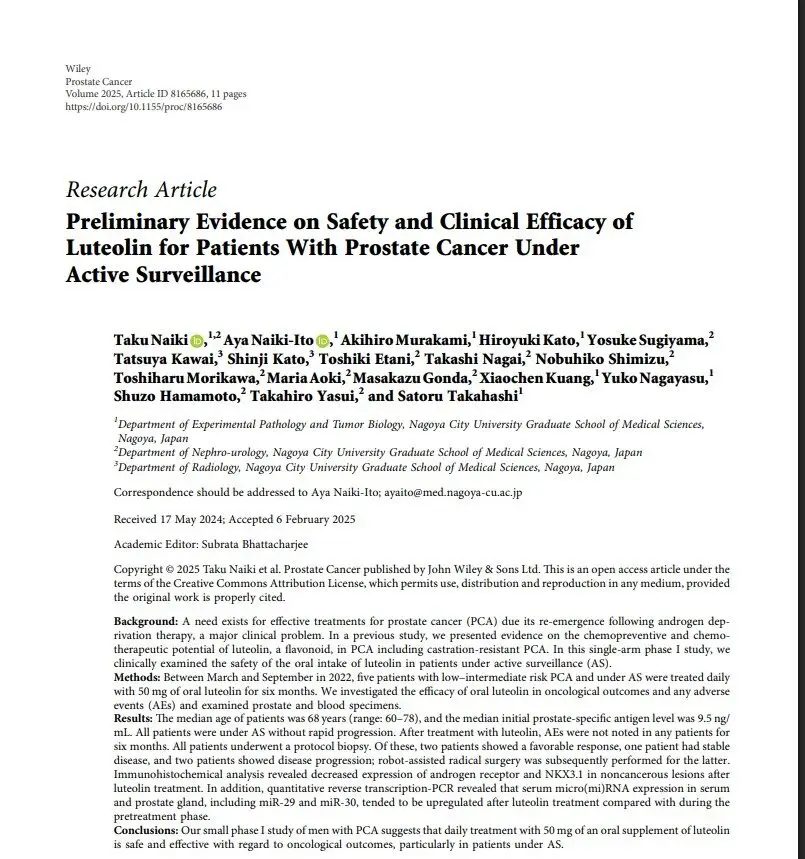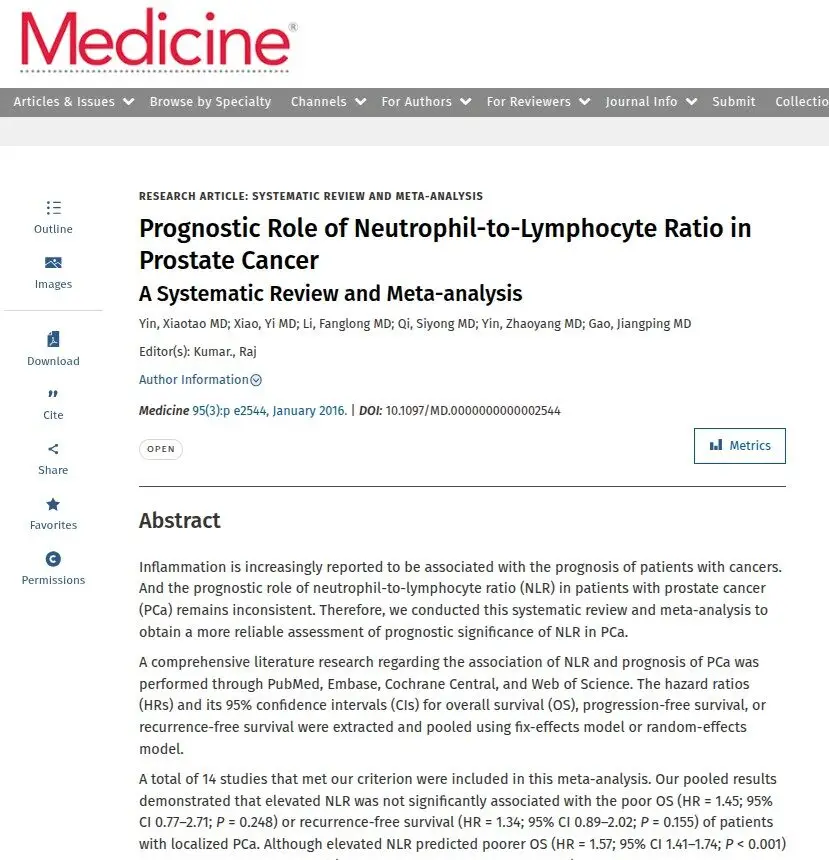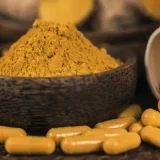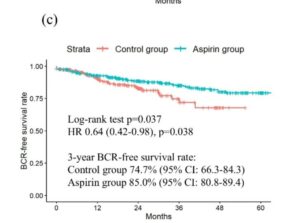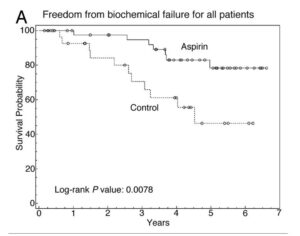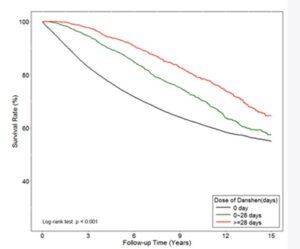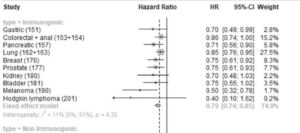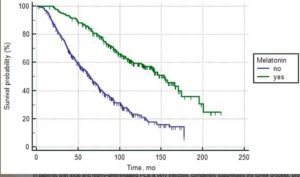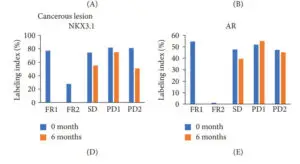Evidence is continuously growing that adding certain supplements, over the counter drugs and dietary functional foods radically improves treatment and reduces risks with prostate cancer. Amazingly, many of the items here show more impact than new emerging oncology drugs can, and of course thats while reducing serious side effects rather than introducing new ones.
Low dose aspirin improves prostate cancer outcomes, including during radiotherapy and surgery such as radical prostatectomy. Evidence shows at least a third lower progression risks, and above 50% lower relative risk of recurrence for more aggressive tumor types. Data from analysis of large scale patient records have similar findings, approximately half the risk of progression. Benefits during early stage disease are lower, but in all stages there is reduction in all cause risk levels too. Research into statin use has similar results. Abnormally high lipid activity is clearly shown to increase both resistance and disease progression, and statins can reduce this. Atorvastain is the most researched, where a prescription is lacking red yeast rice is the natural source of lovastatin. There are also similarities in patient data studies for H1 anti-histamine use. Better outcomes are reported for desloratadine in national patient databases that show lower risk for progression. Some studies show the benefits are larger in those having used these drugs for allergies.
For about half of patients, early stage progression can be slowed by coffee consumption. For those with the so called “fast” metabolizing genotype, around 3 standard 8oz cups daily showed lower progression rates in patients. The other half having “slow” caffeine uptake reported negative tendencies at moderate to high levels. Green coffee extracts only contain a fraction of the caffeine, and much higher concentrations of the active compounds driving insulin and inflammation reductions proposed in these studies, so they are useful here as complements to regular coffee.
Derived from the white pulp of citrus fruits, citrus pectin targets processes used by prostate cancer to increase growth, so called galectin-3 signaling. Some recent impressive results in a phase II trial for relapsed localized disease are shown here, PSA doubling times are quadrupled with sustained use of citrus pectin. In some, higher blood levels of heavy metals such as copper are associated with disease progression. Citrus Pectin, especially combined with brown seaweed algyinates, can drop these levels by 3/4 and at least one case study reports long term remission from this detoxification. Similar research on Fermented Wheatgerm including recent clinical interventions have also reported slowing of progression in around 2/3 of patients with more sustained stable disease results for some.
The extensively researched well proven chinese herbal supplement, danshen, has impressive evidence from national patient records analysis in Tiawan. Danshen was added to standard western oncology, seen in prescription use by 5 to 10 percent of cases. The headline reported risk reduction is 5 to 10%. But the actual data itself shows a larger effect, for instance risk reductions on 12 year mark for those with sustained use were around 36%. The lab studies alongside the data make a compelling case for danshens anti-metastatic action.
Higher levels of circulating Vitamin D3 are reported to reduce risks of progression, and higher doses showed more benefit in studies on patient data. Confirmation via high dose intervention trials are still pending, but 2/3 of patients under active surveillance had significant benefit at only 4000 IU/ 100ug. Other research clearly showed highest suppression of cancer activity in the prostate at 10,000 IU/250ug. These levels can easily be reached with supplements or sunshine and studies in other cancers frequently suggest trials in much higher doses.
White button mushroom supplements at a few grams daily are reported to improve oncology outcomes in over a third of relapsed patients in a recent trial – now moving to phase II. Around 10% saw long term stable results for 3-5 years. Strong lab work provides credible evidence this supplement might enhance immunotherapy. Other research reported similar effects from beta glucans, supplements derived from mushrooms or yeast. Healthy gut microbiome and in particular levels of akkermansia have recently been linked to successful androgen deprivation therapy. There are similar findings with tree nut – especially walnut – consumption and a common factor may be levels of urolithin a as a natural way to re-balance akkermansia and other important gut bacteria. In research here, the researchers find akkermansia effects depend on reduced gut inflammation from inosine. So they suggest directly supplementing with inosine might be explored.
Levels of fatty acids , medium chain acylcarnitines, are reported to be linked with increased metastatic spread. These same fatty acids in anti-aging studies are reduced by use of urolithin a supplements, which is in phase I trials for prostate cancer use during surgery. These can also help increase akkeramansia gut bacteria to regulate tryptophan metabolism, which is reported as increasing lymph node progression. Long chain acylcarnitines had positive effects, typically increased by dietary nuts, oily fish and so on.
Oat and egg derived functional foods can increase anti-inflammatory compounds that reduce tissue fluid pressure. Most solid tumors have increased internal and local pressure that helps them both resist oncology drugs and increase metastatic activity including to the lymph nodes. There are other interesting benefits from soy isoflavones and flaxseed functional foods (see Foods Library).
Systemic inflammation is linked with increased risks for progression, especially in later stages. Both acute type inflammatory responses measured by C-reactive protein, and immune system related neutrophil-to-lymphocyte ratios. Maintaining relatively lower levels of both make a substantial difference. Luteolin is a strong anti-inflammatory available in dietary sources and supplements with some compelling recent evidence for slowing early stage progression. Commonly used and well proven astragalus root has evidence of improving immune system balance and NLR while curcumin and other other functional foods including garlic can help bring down CRP.
The so called Th1/Th2 immune system balance is strongly linked to the progression and to treatment resistance. Molecular iodine solutions are emerging in this area in breast cancer management and seen boosting Th1 anti tumor activity and helping suppress over active Th2 used in resistance. The has improved results in surgery plus chemotherapy and may support increased response immunotherapy (see Supplement Library). For immunotherapy the presence of high sodium levels is now identfied as a key marker for success in other cancers. Also in other cancers, AM treatment programs are substantially more effective that PM/evening sessions



